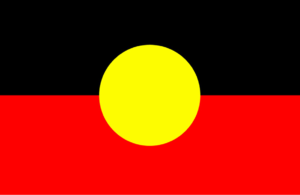The NMHC have launched the National Lived Experience (Peer) Workforce Development Guidelines on Wednesday 1 December 2021
Interested in our initiative? Submit your email to receive an invite to the alive collective.
Menu
Interested in our initiative? Submit your email to receive an invite to the alive collective.
The NMHC have launched the National Lived Experience (Peer) Workforce Development Guidelines on Wednesday 1 December 2021
The launch event for the ground-breaking and much anticipated Lived Experience (Peer) Workforce Guidelines was chaired by NMHC Acting CEO Lyndal Soper and started with the acknowledgements to the steering committee for this project and Dr Louise Byrne and team from RMIT along with many other great lived-experience leaders who have been instrumental in getting the guidelines to this point, including, Janet Maher, the late Jackie Crowe and a cast of well-known lived-experience advocates and leaders who have all worked to shape and help bring this work to fruition. During this part of proceedings, there was also brief introduction to Carrie Lumby who has been appointed as inaugural Director of Lived-Experience for the NMHC.
The NMHC Commissioner, Kerry Hawkins, provided a very brief high-level introduction by way of background to the significance to the guideline. Importantly, Kerry reflected on the people not yet at the table, for a myriad of reasons; and reminded everyone that it is important that they are not left out of future work. Kerry also acknowledged the work conducted prior to this point both by the NMHC and other organisations and groups eg; relating to understanding recovery oriented frameworks, trauma and cultural informed practice. It was also noted, this launch event had drawn a high level of interest in with over 1030 people registering to attend the event.
Assistant Minister to the Prime Minister for Mental Health and Suicide Prevention, Mr David Coleman, shared the government’s support for the inclusion and integration of people with lived-experience throughout the mental health and suicide prevention sectors. Mr Coleman also discussed the ‘unique knowledge and attributes’ people with lived-experience bring to the work in mental health and suicide prevention. The Assistant Minister noted, the guidelines will be instrumental in helping to strengthen and support collaboration across the various workgroups involved in mental health and suicide prevention.
A short video was introduced by way of a best practice exemplar of a peer-led and operated service was showcased by the Peach Tree Perinatal, prior to a panel discussion, which focused on pillar 5 – Supporting Professionalisation – (governance).
Each of the panel member addressed one key message relating to the guidelines. Tim Heffernan (co-chair of the steering committee) spoke about the concept of recovery and the importance that this should be as self-defined and based solely on an individual’s definition of growth and recovery. Tim also discussed that while there have been ‘pockets of great lived experience work eg; peer-led services and an expanding broader lived experience workforce, the lived-experience workforce must now (using the guidelines to assist) scale up. Meanwhile, Paula Arro spoke about the need for synergising national and local level implementation. Paula also spoke about the pivotal role of Primary Health Networks (PHN’s) all 31 of them as a leading commissioning bodies; and how the PHN’s will be instrumental in helping to drive the implementation of the lived-experience workforce guidelines.
Leilani Darwin spoke about ensuring this work, not only includes but is led using a collective approach and by including those who can best speak to cultural competent practices and issues of diversity. Leilani also spoke about the important role of research and evaluation in providing a sound evidence base for informing and influencing lived-experience workforce guidelines, including identifying and helping to articulate what does success look like, how do we measure success and how can the guidelines be used to help shift organisational cultural change, particularly where the appetite for change is not yet ready? Megan Still, an occupational therapist who works in Sydney Local Health District spoke about the pivotal role of allyship with all other workgroups, fostering partnerships, collaboration and how employers can use the guidelines to facilitate integration and collaboration.
Each of the panel members echoed that this is a watershed moment worthy of honouring the hard work of many who have gone before and those still here leading this work, the journey is only just beginning. I can’t help but reflect on and agree with Leilani Darwin when she offered timely advice that we will need (perhaps more than ever) a truly collective approach. A cohesive and collective approach as Leilani noted, will be particularly crucial in workplaces where the cultural environments are such that they are perhaps not (yet) ready for this significant change to power sharing and learning to work alongside, not ‘over or above’ lived experience workers. As she noted (and I agree) this cohesion, collaboration and mutual respect applies and matters all the more as the lived experience workforce exponentially continues to grow and expands out in relatively newer pockets/space, eg; deeper into research, evaluation, management and leadership etc.
A key theme encapsulated by each of the panel members, relates to fostering supportive work environments. This includes the key role of professional supports as important factors for sustainability, so that alongside all other workers lived experience workers (who are now standing up in greater numbers than ever before) can bring their whole selves (hearts and minds) to contribute to the mental, emotional, physical, spiritual, and dare I say it, economic wellbeing, ensuring equitable and equal participation in society for all Australians.
The link to the recording, the guidelines and all other supporting materials are nicely and centrally stored here.
– Martina McGrath –
Member of The ALIVE Lived-Experience Research Collective Consumer Committee
The ALIVE Mental Health Research Virtual Café Translation Conversations #5
Read moreRoles available: Lead Groups for The ALIVE Lived-Experience Research Collective
Read moreTo people with complex mental health needs and on waiting lists for services
Read moreFind out more about the noticeboard feature and how to contribute
Read moreThe ALIVE National Centre’s writer-in-residence program has launched
Read moreThe ALIVE Mental Health Research Virtual Café Translation Conversations #4
Read moreImproving Recovery, Capacity Building and Wellbeing – 20-21 February 2023 at International Convention Centre Sydney
Read morePresentation by Dr Michelle Kehoe and Dr Rick Whitehead at Child & Adolescent Mental Health Conference
Lived-experience researchers from a range of backgrounds joined forces to present a Lived-Experience event at La Trobe University
Read moreIn 2022 we are starting our virtual café series where we will have monthly presentations.
Read moreThis Special Issue will focus attention on the challenges across these sub-sectors and identify appropriate evidence-based leadership practices
Read moreThe NMHC have launched the National Lived Experience (Peer) Workforce Development Guidelines on Wednesday 1 December 2021
Read moreEditorial perspective on principles and recommendations for working with children and parents living with parental mental illness
Read moreThe ALIVE Centre is building on our co-design work with Carers Victoria with a new impact evaluation project
Read moreThe roadmap is a guide for the Centre on ‘Where are we now?’ ‘Where do we want to go?’ and,’How will we get there?’ in mental health research translation in the primary care and community settings.
Read moreThe ALIVE National Centre is funded by the NHMRC Special Initiative in Mental Health.
We acknowledge the Traditional Custodians of Country throughout Australia and recognise their continuing connection to land, waters and sky. We pay our respects to their Elders past, present and emerging. We are committed to working together to address the health inequalities within our Aboriginal and Torres Strait Islander communities. The Uluru Statement from the Heart is a fundamental driver of our research, education program, and commitment to equity and access.
This map attempts to represent the language, social or nation groups of Aboriginal Australia. It shows only the general locations of larger groupings of people which may include clans, dialects or individual languages in a group. It used published resources from the eighteenth century-1994 and is not intended to be exact, nor the boundaries fixed. It is not suitable for native title or other land claims. David R Horton (creator), © AIATSIS, 1996. No reproduction without permission. To purchase a print version visit: https://shop.aiatsis.gov.au/



The ALIVE National Centre for Mental Health Research Translation is funded by the National Health and Medical Research Council (NHMRC) Special Initiative in Mental Health Grant APP2002047.
ALIVE Next Generation Researcher Network Application Form Click here
For University based research higher degree students, early/mid-career mental health researchers
ALIVE Lived Experience Research Collective Application Form Click here
For University and community based lived-experience or carer-focused mental health researchers at all career stages
ALIVE Collective Application Form Click here
For any individuals or organisations with a general interest in supporting the special initiative in mental health
ALIVE Implementation and Translation Network (ITN) Application Form Click here
For sector, service delivery organisations in mental health serving people across the life course and priority populations
If you have a general enquiry about The Alive National Centre for Mental Health Research Translation, please submit an enquiry below
Not a member of the ALIVE National Centre? Register now